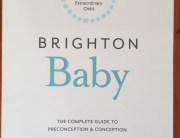 With fertility issues affecting one in six couples in Australia, there is renewed interest in preconception care amongst would- be parents. One expert from First Response advises that women in their 20s need to be aware that their future fertility relies on their current lifestyle practices. Research has proven the importance of vitamins in pregnancy already and a prime example is iodine.
With fertility issues affecting one in six couples in Australia, there is renewed interest in preconception care amongst would- be parents. One expert from First Response advises that women in their 20s need to be aware that their future fertility relies on their current lifestyle practices. Research has proven the importance of vitamins in pregnancy already and a prime example is iodine.
Throughout history, ancient civilisations knew that the time before a woman became pregnant was very special and required a specific diet. This primitive wisdom involved feeding special foods rich in fat soluble vitamins as well as macro and trace minerals to both men and women for a period of time before conception.Women today are being urged to consider protecting their chances of getting pregnant, considering what is now known about the connection between the decline of fertility and age. Advanced technology offers procedures and techniques to artificially preserve a woman’s fertility, however, Dr Mike Smith, expert for fertility brand First Response says “Living a healthy lifestyle will help to improve future fertility”.Recent media attention focused on technology enabling a young woman to freeze her ovaries with the idea of delaying motherhood until later in life has divided experts. Dr Sherman Silber, who conducted the first full ovary transplant in 2007, told the American Society for Reproductive Medicine that the procedure would work better than egg freezing. Other experts warn that this technology has not yet been fully tested and gives no guarantee of conception when the ovaries are re-implanted.Tony Rutherford, chairman of the British Fertility Society, said the research was still very recent and much more needed to be done to ensure the procedure’s effectiveness, especially in how successful the re-grafting of the ovarian tissue when a woman was ready to try and conceive would be.This technology may assist the fertility of some women and couples in the future, however, ensuring your ability to conceive and carry a child can be strengthened by healthy lifestyle habits and commitment to your personal health. Naturopathic preconception care stems from the rich knowledge and traditions of primitive wisdom, focusing on the health of both men and women in the time leading up to conception.Preconception care aims to ensure that there is an adequate supply of all the nutritional factors which are essential for the health of sperm, ova and baby and an absence of those factors which are known to compromise general health or which are harmful to germ cells and to foetal development. During this period, couples are supported to improve nutrition, obtain a healthy weight, avoid allergens, chemicals, environmental and social hazards such as cigarettes, alcohol and drugs including caffeine, as well as educated on natural family planning methods. Individualised treatment is central to naturopathic care and in addition to these methods, herbal medicines or specific nutrients may also be prescribed to support the individual needs of each patient.Source:http://www.postzambia.com/post-read_article.php?articleId=15046




































